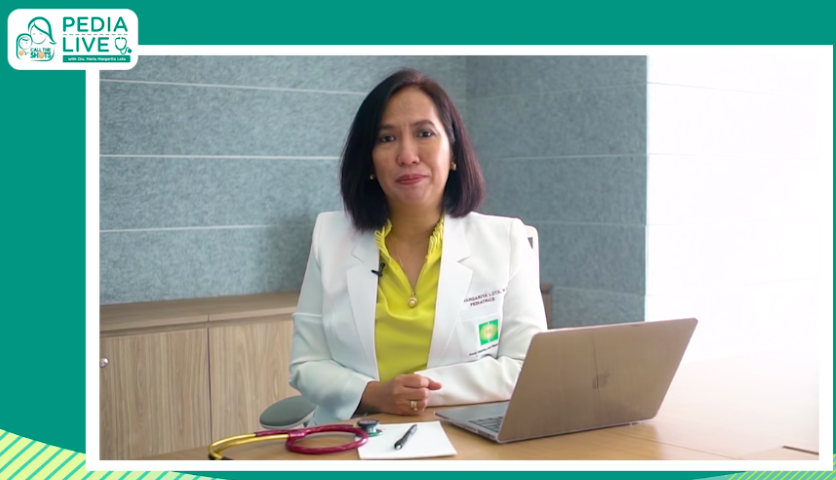It is an established fact that humans can contract a number of illnesses even common ones that can be prevented through early vaccination such as the famous polio, whooping cough (pertussis), tetanus, diphteria, pneumonia, chickenpox, diarrhea (rotavirus gastroenteritis), rubella, mumps, measles, and others. They lead to unnecessary deaths which could be preventable.
Vaccines are one of the most important scientific breakthroughs in the past century or so. A person who is vaccinated will have their immune system boosted by producing antibodies against the viruses.
Everyone should know and agree that prevention is better than cure. One key component to boost the immune system is to get vaccinated on-time. This is especially true for children and infants. Parents should always talk to their pediatrician to help and guide them to the many vaccines available.
“Immunizing your child is one of the most important things a parent can do for their children.”
Dr. Maria Margarita M. Lota
Pediatrician and Faculty at the University of the Philippines – College of Health
Dr. Lota has recommended that children should be vaccinated as early as 6-weeks old. This is because infants are always at a high risk of getting diseases since their immune systems are still developing. Experts in the pediatric world update immunization schedules every year based on the data that they get from medical societies across the globe. On-time vaccinations for infants can also help parents save both time and money in the long run.
The immune system is the human body’s protection against harmful diseases. Dr. Lota assures the public that getting their babies vaccinated is one of the most effective ways of protecting children from harmful and infections diseases. They give immune systems the blueprint to build antibodies against certain bacteria, fungi, viruses, and the like.
We have to understand that vaccination is a type of immunization. Immunization is the process of inducing our immunity either naturally katulad ng pagpasa ng nanay ng antibodies sa kanyang baby or artifically katulad ng pagbabakuna. Immunity ay isang paraan para i-build up ng ating natural body’s defenses ang mga proteksyon laban sa mga sakit na nakakahawa
Dr. Lota
Dr. Lota recommends parents to check in with their pediatrician to keep their children on track in getting the proper vaccines that they need. Moreover, the Department of Health (DOH) spearheads the Expanded Program on Immunization which ensures access to routine immunization for infants and children alike. However, not all vaccines can be given for free. There are some that need to be administered by private health practitioners such as boosters, Hepatitis A, and Chickenpox.
The World Health Organization (WHO) said that there are over 20 life-threatening diseases that can now be prevented using vaccines. Immunizing helps prevent up to three million deaths annually from illnesses such as measles, influenza, pertussis, tetanus, diphtheria, and others. Parents do need to be aware that all vaccines have a varying range of side effects and that is normal.
Vaccination During the COVID-19 Pandemic
When COVID-19 became a pandemic, it has put a stop to almost anything and everything including businesses and vaccination programs. Today that most are adapting to the new normal, “Back to Bakuna” now aims to help families to get their children vaccinated with strict implementation of health and safety protocols. Vaccination programs have been halted due to the pandemic which meant there were less access to vaccines due to the threat of the virus.
Dr. Lota said that there is now a “catch-up” vaccination program that is being implemented. This approach is follows a national immunization schedule that tackles the disruption due to the pandemic. She assures parents that both hospitals and clinics are prepared to vaccinate children thanks to meticulous health and safety protocols.
Below are some steps parents need to take into consideration when planning to get their children vaccinated:
- Find the latest schedule of the chosen clinic and hospital.
- Call ahead and set an appointment since most of these clinics are only able to take a certain number of patients a day due to the pandemic.
- Everyone involved will have to undergo health screening.
- Bring the child’s updated vaccination record
Parents Call the Shots for Their Baby’s Protection
Call the Shots PH is an advocacy campaign that helps spread awareness about the importance of immunization. This is spearheaded by MSD in the Philippines. Their Facebook page shows various discussions and facts by medical experts across the globe.
